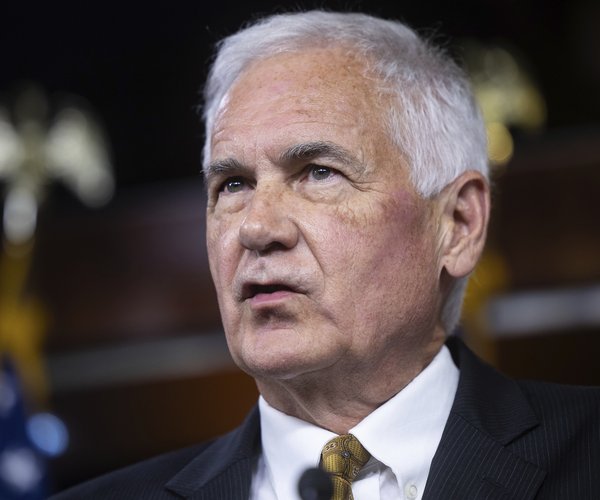Steve Fossett was a successful American businessman and a multi-millionaire. He also was a risk taker.
Before he died in 2007, Fossett set 91 aviation records and 23 sailing marks.
You may ask yourself why is this of interest to you.
The answer is simple. Fossett's ego cost taxpayers big dollars.
Not all of his record attempts were successful. He had more than his share of failures. And more often than not that meant overtaxed public safety resources had to go looking for him.
The biggest rescue effort by far was the one that resulted in his death in 2007 when the airplane he was flying crashed in the rugged eastern Sierra.
Nevada spent $1.6 million - a record that still stands as the most any government agency has spent looking for one man in the history of the United States - for that search. Previous rescue efforts to bring Fossett back alive from his various endeavors cost government agencies as much as $500,000 per occurrence.
Jim Gibbons - Nevada's governor in 2007 - sought to get Fossett's widow to make a voluntary payment of $487,000 to partially offset the search costs to the state's taxpayers. She declined - not because she couldn't afford it - but because she said she had spent $1 million of her own money in the futile effort to locate her husband.
Fossett took a calculated risk for personal glory and taxpayers were on the hook for it.
Then there are those who wantonly disregard conditions or reasonable preparations and make taxpayers spend tens of thousands of dollars in looking for them.
Mt. Whitney is a perfect example. Every year about 75 rescues are performed along the 11-mile trail that leads to the highest point in the continental United States at 14,494 feet. Most are for injuries. Others are to retrieve bodies. The worst year recently was 2010 when five hikers died with each death attributed largely to being ill-prepared and ignoring basic safety cautions such as weather reports of major storms that were about to hit the mountain.
It is the latter - along with those who tackle the strenuous trail with absolutely no previous experience and end up wandering off course 20 to 50 miles - that are by far the most costly and time consuming for emergency personnel.
Should the rest of us be 100 percent on the hook for rich people or others that undertake dangerous record attempts for their ego or for anyone who ignores warnings and is ill-prepared to go into the harsh wilderness?
The people of New Hampshire don't think so. They regularly bill hikers who through negligence require "costly and dangerous rescues."
In the past five years, New Hampshire determined that 38 of the hundreds of rescues they conducted were prompted by the hiker's negligence. In those cases they billed the people rescued $83,025 and collected $53,317.
The worst example of negligence was a man who was hiking alone, had a pre-diagnosed medical condition and was where he shouldn't have been which was above the tree line. That rescue involved a Black Hawk helicopter and cost New Hampshire $30,000 overall.
There's a huge difference between someone who needs emergency help while in or near civilization and someone who needs it because they make a decision to wander off into the wilderness ill-prepared or seek personal glory by pushing the envelope.
Government needs to stop subsidizing dangerous behavior.
If the rich decide to build on the rugged Malibu coastline or on the shore on the Eastern Seaboard and their mansions get demolished in storms, then they should not receive taxpayer help to rebuild even if it is a low-cost federal loan.
The same goes for those who put their lives at risk through pursuit of personal glory or those who employ gross negligence when heading out into the wilderness.
The only way to get government spending under control is to emphasize personal responsibility where it makes sense. And nowhere does it make sense as much as it goes to not paying for things that are the result of ego stroking or wanton disregard for safety.
This column is the opinion of Dennis Wyatt and does not necessarily represent the opinion of The Journal or Morris Newspaper Corp. of CA.







